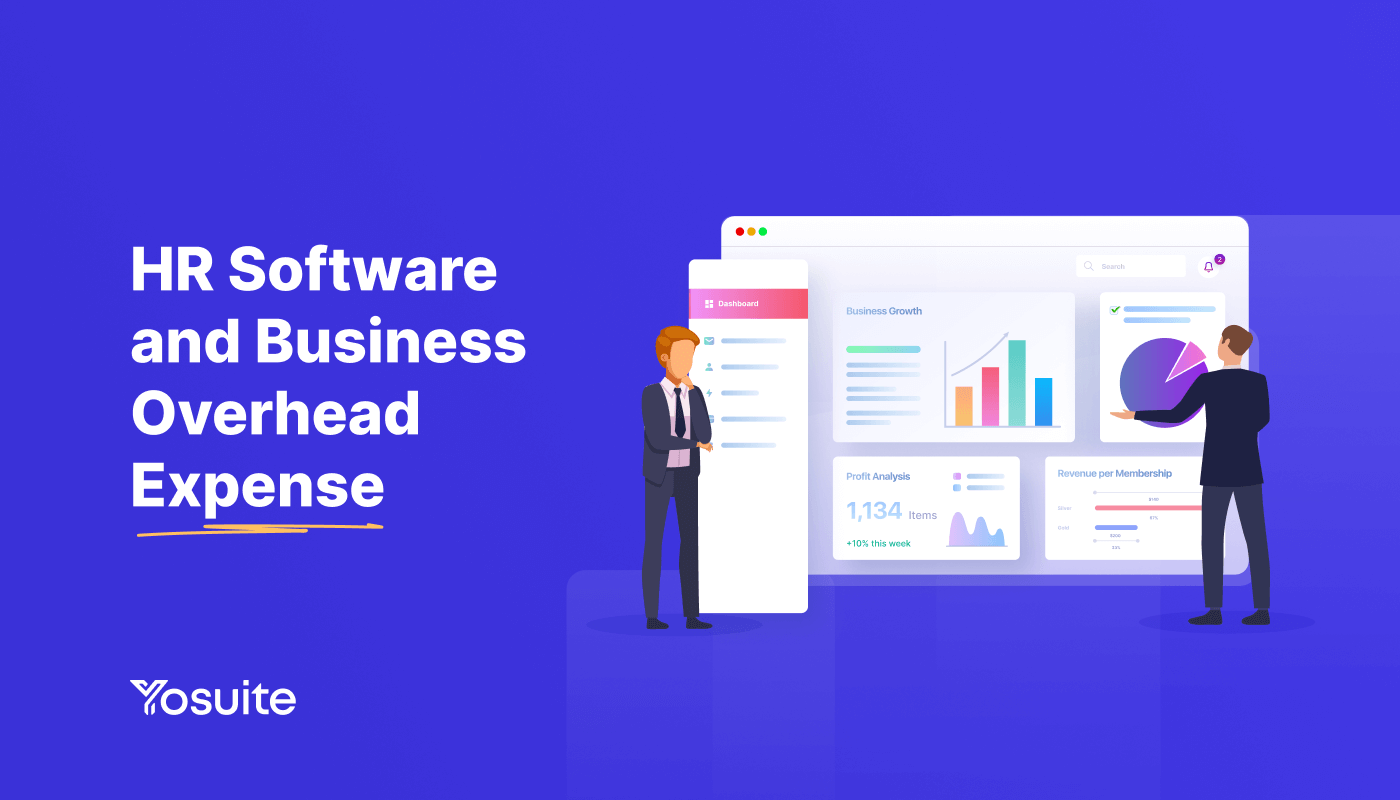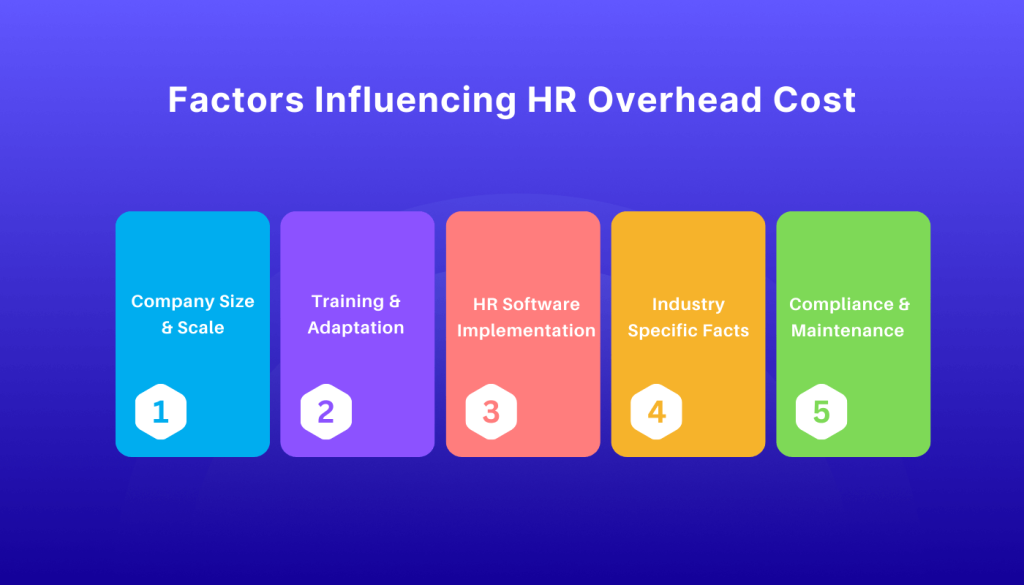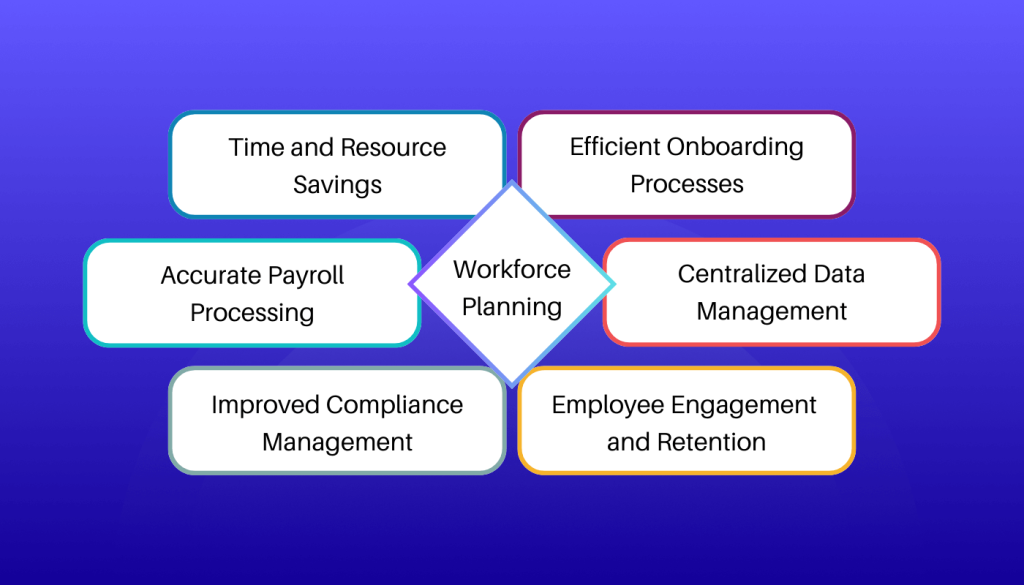Do HR Software Increase or Decrease Your Business Overhead Expense?

HR software is essential for organizations. However, it’s associated with the overhead expenses of the company.
In this scenario, a common question arises: “Do HR software increase or decrease your business overhead expense”? 🤔
💡Short Answer: Using the right HR software definitely decreases business overhead expenses. It helps to improve workflow efficiency and cut manual work despite initial costs.
For a detailed discussion, keep reading!
What are Business Overhead Expenses
Overhead expenses are the indirect costs of a company such as rent, utilities, insurance, etc. The HR software cost is also considered a business overhead expense. It includes buying, maintaining, and training for the software.
They are not directly related to the production of goods or services. However, these costs are essential for any organization’s day-to-day operations.
Good to know: The ideal overhead percentage varies by industry and business size. A common benchmark is to keep overhead costs between 20% and 35% of total revenue.
Factors Influencing HR Overhead Cost

A variety of factors can influence Human Resources (HR) overhead costs. Understanding these factors helps to ensure compliance, efficient resource allocation, and optimize overall costs.
Here are some key factors:
👉 Company Size and Scale
The number of employees directly affects HR overhead costs. Larger companies typically require more HR resources for effective management. That increases the personnel and administrative expenses of a company.
👉 Employee Training and Adaptation
Training employees well helps them work better. But teaching them costs money and makes overhead costs go up.
👉 Regulatory Compliance and Maintenance
Regular maintenance helps the company follow the law. It also reduces the risk of fines and legal problems. Staying within HR compliance, keeping them on track, and adjusting to changes also increase HR overhead expenses.
👉 Industry-Specific Considerations
Different industries have different HR needs. For example, a software company’s HR requirements include hiring technical staff and following software development standards. These specific needs also increase business costs.
👉 HR Software Implementation
Implementing and using HR software in an organization also contributes to the business overhead cost. Also, integrating HR software with existing systems is challenging. It sometimes requires special expertise and leads to additional costs for your company.
Initially, using HR software seems a bit costly! In the long run, it will definately reduce your business overhead expenses. 💯🤩
How does HR software decrease your business overhead expense
So, HR software can decrease the overhead cost of your business! It can speed up processes, improve accuracy, and support strategic workforce management.
Here are the 7 ways how HR software can decrease your business overhead expense effectively:

1️⃣ Time and Resource Savings
Using HR software with e-signature has the potential to reduce signed document turnaround times by as much as 90%!
Like e-signature, HR software can automate routine tasks of your organization. For example, tracking and maintaining attendance logs manually is time-consuming and difficult.
To solve this, you can use employees’ time-tracking HR software. It reduces paper usage and minimizes human errors. Also, helps to save administrative hours and costs.
In addition, employees can electronically clock in and out. This frees up HR professionals to concentrate on strategic and more productive tasks.
2️⃣ Efficient Onboarding Processes
Traditional onboarding processes are all about printing, distributing, and collecting forms. These are both time-consuming and costly.
In that case, HR software speeds up onboarding by cutting paperwork and saving on admin costs. Also, it helps in quicker integration and lowering the overall training expenses.
3️⃣ Accurate Payroll Processing
Manual payroll calculations are prone to error. Even small errors can cause problems and might even lead to legal issues. Using payroll HR software can automate the entire payroll process.
Payroll HR software accurately calculates salaries, taxes, and other expenses. This reduces mistakes and ensures salaries are paid correctly and on time. It also decreases the need for fixing errors, audits, and related overhead expenses.
Good to know: 69% of users noted that HR software implementation reduced their payroll processing time. ⌛🚀
4️⃣ Centralized Data Management
Keeping employee records in different places is unsecured and costly!
HR software especially human resources information systems (HRIS) can put all the employee information in one place. Centralized data management reduces the risk of errors. Also, it enhances data accuracy and saves business overhead expenses.
5️⃣ Improved Compliance Management
Staying compliant with the ongoing HR regulations is truly a complex task. Many HR software come with built-in compliance features and country specifications. They can automatically update when any law changes.
This helps avoid penalties and legal costs for breaking labor laws. Overall, contributes to significant cost savings for your business.
6️⃣ Employee Engagement and Retention
Did you know, investing $1 in employee wellness programs can result in a 5x return?
Using HR software can help make employee wellness programs even more effective. It helps in employee engagement surveys, feedback, and performance tracking. Then you can work towards their well-being.
These activities make employees feel valued and supported in their well-being. This leads to higher satisfaction and commitment among employees. And, ultimately HR software helps to improve retention and reduce your business overhead costs.
7️⃣ Strategic Workforce Planning
Without data-driven insights, workforce planning can be inefficient. HR software analytics can provide insights into workforce trends. Also, effectively helps your business optimize staffing levels.
For example, using HR software can figure out the high-demand periods. So you can plan better and avoid spending too much during slower business times.
HR software can evaluate employee performance, skills, and potential gaps. This helps manage staff better, use resources wisely, and save overhead costs.
FAQs
Is HR considered overhead?
Yes, HR is generally considered overhead. Costs associated with HR, such as salaries, benefits, and training, are classified as overhead expenses. Because they don’t directly contribute to the production of goods or services.
What expenses are not overhead?
Direct expenses related to production are not considered overhead. For instance, direct costs for creating a product or delivering a service, raw materials, direct labor, etc.
What are the key considerations while choosing HR software?
While choosing HR software, you should consider some essential features such as integration capabilities, data security, scalability, user-friendliness, cost vs value for optimal functionality, and long-term adaptability.
Key Takeaways: Do HR Software Increase or Decrease Your Business Overhead Expense
- HR software decreases your business overhead expenses
- Simplifies HR functions and operations
- Reduces manual work and paperwork
- Saves time and minimizes staffing needs
- Centralizes HR data management
- Lowers the risk of errors and compliance issues
- Improves productivity and leads to long-term cost savings
4 Comments
Thanks I have recently been looking for info about this subject for a while and yours is the greatest I have discovered so far However what in regards to the bottom line Are you certain in regards to the supply
Thank You, Rudolph Green. Stay tuned 🤗
The author’s eloquence and precision in writing are commendable.
Thank You, Slot Gacor Aman. Stay tuned 🤗